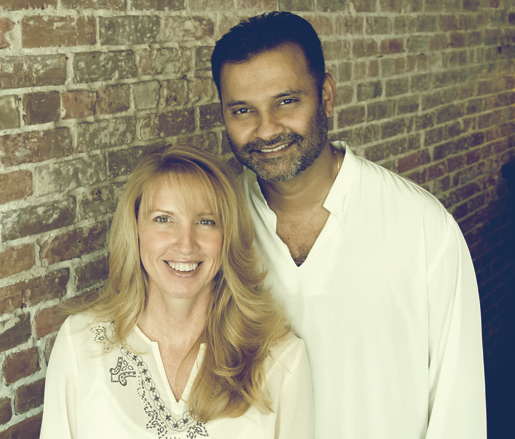
Restaurateurs Hari and Jenneffer Pulapaka Serve Up Their Leftovers to Community Farms
It’s an issue that has swiftly gained more attention: food waste is overflowing in our landfills. We know that from farms to supermarkets and school cafeterias to home kitchens, food is regularly discarded without much thought about where it ends up.
In restaurants, food waste can be uneaten bread, vegetable scraps, accidentally overcooked fish, a forgotten take-out box, or the uneaten food on a customer’s plate. Even at a small establishment like Cress in Deland, Florida, the sheer volume of trash-bound edibles made owners Hari and Jenneffer Pulapaka start thinking about ways that they could cut down on their share of landfill-clogging leftovers. We spoke with them about the solutions they’ve implemented.
JBF: About two years ago, you started recycling food waste in your restaurant. How did you come to focus on food waste?
JP: From an early age, Hari and I were both used to eating modest-sized meals with little to no food waste. Also, I’ve been a vegetarian for more than 20 years, so animal protein waste was particularly difficult for me to accept. In America, we’ve finally come to understand food hardships and insecurities, yet food waste continues. This separation between our waste and the knowledge that others languish in extreme hunger is an irony that Hari and I couldn’t live with anymore. From the very beginning at Cress, we have practiced responsible use of energy and food resources.
JBF: How did you start?
JP: I knew there had to be a solution to the waste we were seeing, and that the Twin Cities had a fabulous program (rethinkrecycling.com), so I got some ideas from that. Then we started with one of our small local farmers: Ben Walter from Hermitage Farms has been taking our food waste and using it as feed for his pig and chicken farms.
JBF: How has this program had an economic impact on your business?
HP: The recycling of our waste begins with our commitment to use every ingredient we buy to its maximum potential. All of our trimmings are converted into delicious stocks, which fortify our sauces. After that, the scraps go into our food waste bin. We’ve also been more mindful of our portion sizes—this kind of control naturally helps us keep our food costs manageable.
JP: Food waste recycling also decreases the cost for waste removal services.

JBF: What exactly is being recycled?
JP: Both the uneaten food from our customers and the food preparation wastes from our kitchen. Some specific examples from restaurants are uneaten rice and bread, overcooked foods, forgotten to-go boxes, animal trimmings, and uneaten food from customers' plates. These are all major factors toward what’s accumulating in our landfills.
JBF: Are there other ways that you cut down on food waste in your restaurant?
HP: As a chef, I think serving proper portions and making delicious, thoughtful food will go a long way toward reducing food waste from the dining room. In the kitchen, using proper refrigeration and controlling order sizes have an impact. Also, education that teaches cooks to use all parts of the ingredients helps ensure that the food tastes better, has greater nutritional value, and utilizes already purchased ingredients before they spoil and create waste.
JBF: Do you have any tips for other restaurateurs who want to implement something like this in their own restaurants?
HP: It would help to team up with other restaurants, farmers, cities, academic institutions, or neighborhood organizations to see how a community could best utilize the existing resources. Any restaurant can do this. We have been doing it for over two years, every single week. Once the schedule is set up, maintaining it only depends on having the commitment to separate the scraps and refrigerate them until pickup. In this regard, Ben Walter says, “Providing a central drop-off location would be ideal. Larger amounts could be collected and more often.”
JP: It does not take a large farm, just support from small community farms or hobby growers to help prevent the food waste from going into our landfills.
JBF: What’s been the most valuable part of this experience?
JP: We received immediate satisfaction by helping a farmer save money, increasing the quality of food given to his animals, and helping our community by decreasing our landfill impact.
JBF: What’s next for Cress?
JP: We hope to generate enough interest and leverage so that we get maximum “buy-ins” from other businesses and even Stetson University. The weekly volume results in savings of over 50 pounds of dry feed for Ben. Now imagine what all the downtown restaurants and local colleges and universities could collectively bring to this kind of program!
--
We're focusing on solutions to fight food waste all month long! Get the full coverage here.
Alison Tozzi Liu is editorial director at the James Beard Foundation. Find her on Twitter and Instagram.






